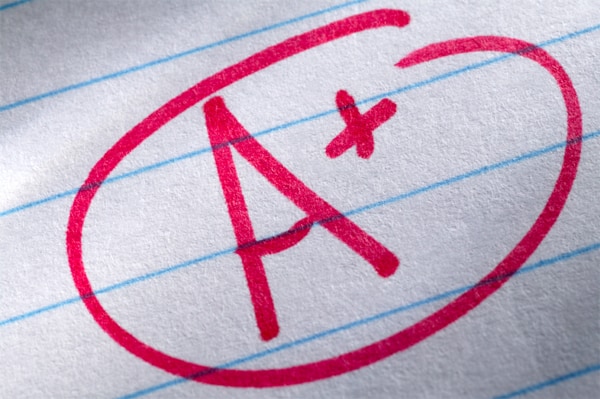Dr. Sahil Mehta explains how medical school admissions this cycle may not require the MCAT due to COVID-19. Your questions will be answered.
- Will medical schools consider applicants without MCAT scores this cycle?
- Should I apply this cycle if I need to retake the MCAT to boost my score?
- How will medical school admission committees judge students without MCAT scores?
- What should I do to make my medical school application effective without an MCAT score?
FULL TRANSCRIPT
Hey, everybody.
Last week, we told you a little bit about how Coronavirus and COVID-19, is affecting the MCAT. MCAT was cancelled in the late March and early April administrations. Ken Tao of MedSchoolCoach has a video on it. Subscribe, watch it. It’ll give you a lot more details on that. But today, I want to focus in a little bit of on how this may affect the 2020 / 2021 application cycles specifically around schools that are not going to have an MCAT evaluation to judge one. So just as a little background, let’s take a step back.
Every year there’s about twenty-two thousand or so seats in U.S. medical schools for applicants to apply to. Typically there’s something around fifty thousand or so applicants for those seats. The numbers are not exact, but close enough. Now about a third of those students, if not more, probably take their MCAT sometime between March and June of their application year. Now, this year, obviously, that’s all thrown into disarray if a third of applicants can’t take their MCAT before they apply.
What are schools going to use to judge applicants on or our school is going to be able to judge those applicants? Well, let’s break this out. A couple of sections, right? The first is that my thought is that most medical schools are still going to accept the same number students. They always accept. Right. They have an allocation for those students. They need to graduate students. We all need physicians as in the United States. Now, more so than ever. So if a school typically has 110 slots or 150 slots, they’re going to still accept students – that many students to their incoming class.
The problem is going to come in now. We have a huge swath of students, remember, maybe about a third or so of the fifty thousand that apply that are not going to have their MCAT in time for the admissions cycle. And so some of those students may be able to squeeze in an MCAT. Some other students obviously have taken the MCAT previously, but a lot of students are just not going to be able to take the MCAT in the climate that we’re in today. So how is that going to affect schools?
Well, schools have already started to think about this. In fact, even send out e-mails about this. So there’s a couple of schools that even have said that MCAT probably won’t be taken into as much consideration this year or that they will consider applicants without an MCAT score. Now, this is huge, right? I mean, think about this for a sec. For years and years and years, GPA and MCAT have been really the two main things that schools evaluate applicants on. Now, everything else makes a lot of difference, right? Your interview, your personal statement, your activities that you’ve done, who you are as an applicant. Absolutely. That makes a huge difference.
But the reality is that MCAT and GPA were really big, big factors in MCAT specifically because it was the ability for schools to standardize across the board. What an applicant was compared to another applicant, right? GPA is kind of variable and MCAT is an easy thing for schools to pin down – pin down on and say OK, that person has the ability or that person doesn’t or this person scored better, this person doesn’t. Now is that a great thing to do? Well, that’s a different story. And not going to say it is or isn’t. We can discuss that later. But the reality is that is what happened. MCAT was really the main consideration for a lot of schools in terms of, hey, should I look at this application further? Should I read the personal statement, should read the letters of recommendation? Should I understand who this is as an applicant or should I screen them out? Now, schools are perhaps not going to have that opportunity.
There’s gonna be a lot of great applicants out there who are just not going to take the MCAT in time for the application cycle or potentially are not going to take the MCAT at all before they apply to medical school. And I think the latter scenario is actually becoming more and more likely as the days pass. So schools are going to start to consider applicants without the MCAT, probably. Now, how do you as an applicant, make sure that your application shines without the MCAT? Well, obviously, your GPA is going to play a bigger role. And so if you have a really strong GPA, I would say go ahead and apply.
But if you have a really weak GPA and we’re relying on that MCAT score to boost you into a situation where schools are going to accept you or be looking at your application in a little bit more detail, maybe it doesn’t make sense for you to apply this year and actually wait until things calm down, take the MCAT in the usual setting and score high so that hopefully you can make up for that low GPA. For those of you that have a high GPA, well, perhaps this is a great year to go ahead and apply and really structure everything else, right.
So, now the personal statement actually becomes even more important, right? Your activities become even more important. Letters of recommendation? Even more important, the way that you craft yourself as an applicant is going to become even more important because, you know, now schools are actually going to have to sit down and look at an application truly holistically. In the past, they’ve always said, well, we look at applicants holistically. Yeah, that’s true. But the reality is, again, the MCAT was a big factor in who actually gets their application looked at in some more detail.
Right. A school might get ten, even fifteen thousand applicants, there’s no way for them to review all those applicants in great detail, and so they use the MCAT as a cutoff. Now we’re not going to have that. So they’re probably going to still use GPA as a cutoff. But a lot of students are going to have, let’s say, a 3.8 3.6, 3.7, whatever school might use as their cutoff range. And remember, those vary depending on a number of situations, right, in-state versus out-of-state. Your ethnicity, your post-bacc, GPA, all these things can consider – come into consideration.
So don’t ask, hey, what is the cutoff of that school? You know, it’s going to be different and they’re never going to really say that we have a definitive cutoff. OK. All that said, schools are not going to be able to really cut off applicants “as well” quote-unquote as they used to. So now they’re going to have to really read into that application. So I think your personal statement and the way that you craft your application actually becomes even more important right now. This is going to be the real differentiator for you. You with a let’s say 3.7 GPA and applicant B with also a 3.7 GPA. We don’t have an MCAT score to compare you two up again. So now it’s all about. OK. What do you bring to the school? What do you bring to the profession? Who – what have you done in the past to prove that being a physician is really what you want to be? I mean, this is what’s going to really come across.
So they’re going to be schools this year that are going to say MCAT is not what we are going to primarily consider. We’re going to consider applicants without an MCAT score. And that is your opportunity to really shape the rest of your applications. For those you who are non-traditionals out there or maybe have done things that are outside the norm. This is really your chance to put that on paper and show a school just how exceptional you are, just how much you can bring to the profession of medicine for those young guys who are more traditional applicants are really maybe don’t have a whole lot that separates yourself. Well, think about what does.
Think about – Ask yourself this question. Why should the school accept me as an applicant? That’s the first question you should ask yourself when you are thinking about how to craft a personal statement, how to write your AMCAS activities. What to specify in your three most meaningful activities, secondaries, and interviews? Why should a school accept me? And if your answer is not clear? Well, you may need to sit down and think about it for a little bit longer until your answer is clear, because that’s how you’re going to shape your application.
Now, let’s give me another question that comes up, which is what if I’ve taken the MCAT already and was relying on the second test date to maybe boost my MCAT score in order to be more competitive? Well, you know, this is going to be tough, right, because you’re going to apply and you’re going to have maybe that lower score on your application. And the reality is that that’s the score that schools are going to look at. Now, again, schools are going to consider applicants maybe without an MCAT score this year.
But if you already have an MCAT score, AAMC is still going to report that to schools. How deeply are they going to consider? This is going to be up to every single admissions committee on their own and maybe even every admissions reviewer on their own. So an admissions viewer might look at your application and say, well, this person has a let’s say a five hundred MCAT score. You know, that’s typically not high enough for us at our school. So I’m really not going to look too much deeper into this application. Or conversely, they may say, well, this person has a five hundred MCAT score, but they have a 3.9 GPA. We’re not really considering MCAT score that strongly in this year’s application class. Let me look a little bit further.
So a lot of this is still in flux. We’re not quite sure how schools are going to handle it. But I do think that schools are going to allow people to apply without an MCAT score this year. You really have to be a great applicant to make sure you make that threshold, which is to say, you know, if you have a 3.2 GPA, there’s a lot of people with a 3.9, 4.0 GPA who are going to be applying. And you really probably still aren’t going to make the cut. Don’t think that it’s going to be tremendously easier to get into school this year. It’s still a very competitive process. Lots of really competitive people are still going to be left out. But it’s an opportunity to kind of think about how the remainder of your application comes together and what are the most significant aspects of why a school should accept you.
We need doctors. It’s obviously proven now more than ever that this is really the most incredible field that you can enter into. And this is a life sacrifice. We want to train physicians and we want to train the right physicians for you as a medical student or pre-med student this year. I understand that the process is in significant flux. I get it. However, it’s going to be OK. At the end of the day. If being a physician is what you want to be, you’re still going to be able to get there this year. If you – if your MCAT has been canceled and you don’t have the opportunity to take it, there’s probably a strong likelihood that a lot of schools are going to say, you know what? No problem. We understand. Let’s look at the rest of your application and see if we can accept you. A medical school.
Good luck out there.



